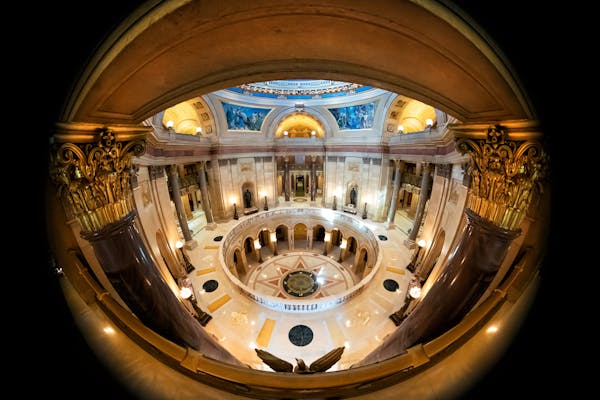Leaders in Minnesota's divided Legislature are conceding that they will need extra time to strike a deal on broad numbers around the state's two-year budget, despite a Monday deadline to adjourn.
Negotiations between Gov. Tim Walz and legislative leaders on spending targets remained slow and far from public view Friday, one week after a self-imposed deadline to send those numbers to conference committees working to reconcile competing House and Senate spending proposals.
"We know we're going to overtime," Senate Majority Leader Paul Gazelka, R-East Gull Lake, told reporters moments after a virtual negotiation meeting with Walz and House Speaker Melissa Hortman, DFL-Brooklyn Park.
Walz also extended Minnesota's state of peacetime emergency for another 30 days on Friday, making it increasingly likely that legislators will be back at the Capitol for a mid-June special session.
And even if a late deal is somehow struck before Monday, lawmakers will not be able to process and pass the massive budget bills in time.
"We don't know if we will have numbers ready or not by Monday," DFL House Majority Leader Ryan Winkler told members late Thursday night. "At this point in time it's quite clear that major legislation will still be on hold pending a June special session. This is the reality that we face and members might as well be prepared for it."
Leaders have been trading offers on the state's budget behind closed doors all week, but major divides remain on overall numbers, police accountability legislation and the spending of more than $2.8 billion in federal COVID-19 relief aid coming to the state.
Another sticking point in negotiations on the roughly $52 billion state budget is the matter of Walz's emergency powers, which have enabled him to impose sweeping mitigation efforts such as a statewide mask mandate and limiting the number of people inside bars, restaurants and other venues.
Republicans have called on Walz to end the state of emergency in Minnesota and relinquish those powers, despite the fact that Walz recently announced all restrictions would phase out by May 28.
"Extremely disappointed that the governor would continue to have regulations on our schools," Gazelka said Friday. "I realize it is near the end of the year but let them finish the school year normally. There's no reason that teachers and everybody should wear masks in schools, and they had this opportunity to just lift it all up."
On Friday, Walz also signed an executive order to lift the state's mask mandate, following new guidance from Centers for Disease Control and Prevention that fully vaccinated people do not need to wear masks outdoors in crowds and in most indoor settings.
But Walz said he needed to extend his powers for another 30 days to continue the rollout of the state's vaccination program, provide COVID-19 testing and keep the flow of federal funding to the state.
"That progress puts us in a good position but we are not done," Walz said before a meeting of the Minnesota Executive Council, made up of statewide officials, who unanimously approved the extension. "We have a lot of work to be done around vaccination, testing, and then there are practical matters around federal aid."
Lawmakers are automatically called into a special session if they are adjourned when the governor extends his emergency powers, meaning they'll be back around June 14 if Walz extends his powers again this summer.
Walz could also call a special session for lawmakers to finish budget work if he doesn't extend his emergency powers or if they reach an agreement sooner. Lawmakers must strike a deal before June 30 to avoid a state government shutdown.
